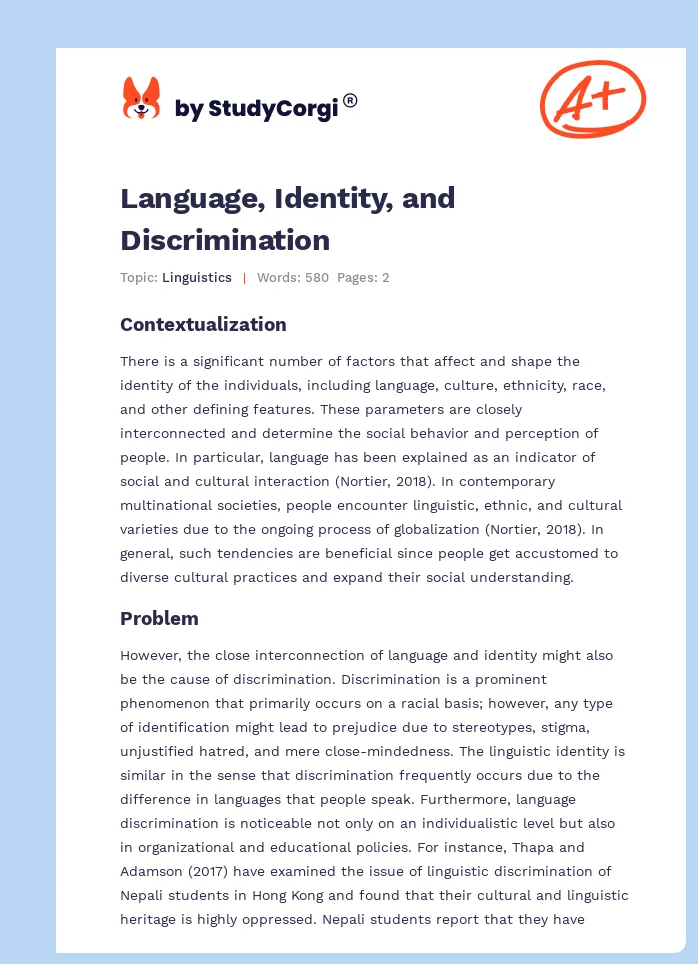Language serves as a fundamental conduit for expressing identity and culture. In various societies, the terminology used to describe racial and ethnic identities often engenders substantial discussion and contemplation. The term “Black” is widely recognized; however, contextually, it may not encompass the entire spectrum of experiences and cultures it seeks to represent. This article endeavors to dissect the linguistic alternatives to the term “Black” through a cultural relativism lens, posing a provocative inquiry: What if language shapes our perceptions and lived experiences more profoundly than we realize?
To commence, we must clarify the multifaceted nature of identity. Identity is neither monolithic nor static; it evolves concurrently with societal changes and personal experience. Ethnic identity, in particular, is often constructed through the interplay of language, cultural memory, and historical narratives. Thus, the term “Black” may signify various ethnicities, backgrounds, and lived experiences across the globe. For instance, Afro-Caribbean, African American, and Black British identities manifest distinct cultural nuances despite a shared African ancestry.
A significant avenue for understanding alternative terminology is the inclusion of diasporic expressions. Phrases such as “Afro-descendant” or “people of African descent” can encapsulate a broader range of identities while paying homage to heritage and history. In culturally rich settings, referencing the specific ethnic origin—a term like “Yoruba,” “Zulu,” or “Kikuyu”—may prove more illuminating than the catch-all descriptor “Black.” These distinctions foster a richer tapestry of identity, positioning individuals within their historical contexts. How does this granular approach alter societal perceptions of race and ethnicity?
Moreover, the evolution of language is inextricably linked to the sociopolitical landscape. The reclamation of terms that were once derogatory merits attention. For example, the utilization of “Black” within the context of advocacy movements has transitioned from a pejorative connotation to a term of empowerment. This evolution illuminates the dynamic nature of language, as words frequently oscillate between stigmatization and glorification. The inquiry thus arises: Can language genuinely reflect a community’s collective identity when such words are susceptible to changing meaning? In other words, how do those within the community navigate these shifting linguistic landscapes?
Language, it seems, is a living entity that simultaneously shapes and reflects cultural nuances. The concept of cultural relativism prompts us to acknowledge that interpretations of identity are deeply interwoven with local customs, historical contexts, and social dynamics. As such, it is crucial to consider how different societies perceive terms synonymous with “Black.” In certain cultures, identity may be articulated through connections to land, community, or lineage rather than strictly through race. This realization transcends mere terminology, highlighting the need for intercultural dialogue to enrich our understanding of identity.
Common alternatives to “Black” include “African heritage,” or encompassing terms like “people of color.” While these alternatives serve as polite designations in many contexts, they run the risk of homogenizing intricate identities and eradicating the individuality of experience. Engage in a thought experiment: If a person identifies as Afro-Latino, how might they feel when labeled solely as “Black”? This distinction emphasizes the importance of attentive listening and the necessity for individuals to define their own identities. In doing so, we enable a more nuanced conversation around race, identity, and language, creating spaces for self-assertion and expression.
In addition to linguistic distinctions, the sociolinguistic implications of language choice cannot be overlooked. The terminology adopted can govern social interactions, accessibility to resources, and societal acceptance. Words carry weight, and the process of naming encompasses both power and agency. When marginalized communities reclaim language, they assert their identity and challenge societal narratives surrounding race. This reclamation is indicative of a broader cultural resistance and can bolster a sense of belonging.
However, acknowledging these nuances necessitates confronting challenges. As societies grapple with the complexities of race and identity, one potential pitfall is over-reliance on specific terms. For instance, the term “Black” is often favored in discussions surrounding systemic racism and social justice initiatives. Such terms can unify individuals in solidarity against oppression, yet they may also inadvertently conceal the rich distinctions among varied identities within a community. The subsequent question emerges: Can activism remain effective while promoting the individuality inherent within collective identity?
In light of this, fostering dialogue can lead to richer understandings of identity beyond linguistic categorizations. By engaging in conversations that emphasize experience, nuance, and cultural context, individuals can cultivate a language of empathy. This engagement was evident in numerous community organizations, where members prioritize personal narratives and storytelling precisely to illuminate the multifaceted nature of identity. How might the dynamics of community change if language became more inclusive of these diverse narratives?
In summation, the exploration of alternative terminology to define “Black” reveals the intricate interplay between language and identity within cultural contexts. This inquiry underscores the significance of listening—of allowing individuals to articulate their identities on their own terms. Ultimately, as society progresses toward greater inclusivity and understanding, it is imperative to embrace the dynamic relationship between language, identity, and culture. A concerted effort towards respectful dialogue will pave the way for a more profound appreciation of the diverse spectrum of identities that exist within the broader human narrative.
